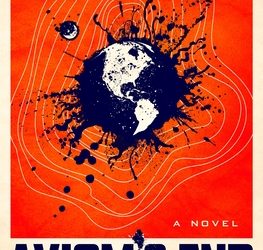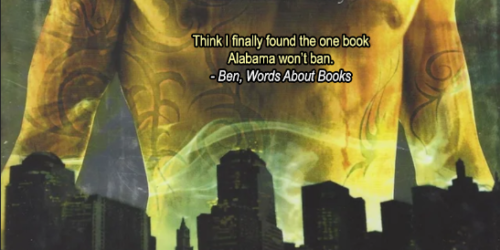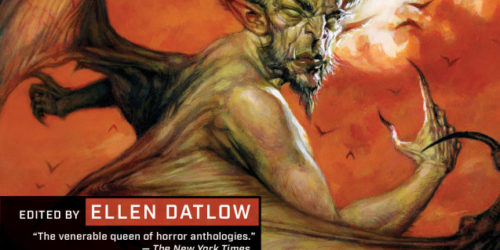The Letters of Tolkien
I recently read The Letters of J.R.R. Tolkien. I did a Goodreads review of the book that may help a fan of Lord of the Rings, or even just someone who is curious about Tolkien, decide if the book is for them or not. On the blog, I wanted to talk a little more about how the book made me feel, and some of the things it made me think about. Observing Tolkien’s life and career unfold through his correspondence was one of the most inspiring reading experiences that I’ve had in a very long time.
The collection primarily focuses on letters having to do with the writing and publication of Tolkien’s books. There is the occasional detour into Tolkien giving his thoughts and advice on things like romantic relationships, religion, technology, war, and a variety of other odds and ends. Tolkien was reluctant to cooperate with efforts to publish a complete biography. He didn’t think that his personality was important to understanding his work. I respectfully disagree. I think that the interpretations and lessons one can draw from Tolkien’s work are endless and unique to each reader, but I think that the lessons he took from his work are equally interesting.
Allegory and Power
If there is one point that Tolkien is absolutely clear on in his letters it is that he despises “allegory.” Nothing in The Hobbit, The Lord of the Rings, or The Silmarillion is an intentional allegory for anything in the real world. Despite a lack of specific allegories, many of Tolkien’s own thoughts about the nature of the world and morality are baked into his stories.
Of course, Allegory and Story converge, meeting somewhere in Truth. So that the only perfectly consistent allegory is a real life; and the only fully intelligible story is an allegory. And one finds, even in imperfect human ‘literature’, that the better and more consistent an allegory is the more easily can it be read ‘just as a story’; and the better and more closely woven a story is the more easily can those so minded find allegory in it. But the two start out from opposite ends. You can make the Ring into an allegory of our own time, if you like: an allegory of the inevitable fate that waits for all attempts to defeat evil power by power. But that is only because all power magical or mechanical does always so work. You cannot write a story about an apparently simple magic ring without that bursting in, if you really take the ring seriously, and make things happen that would happen, if such a thing existed.
Carpenter, Humphrey; Tolkien, Christopher. The Letters of J. R. R. Tolkien (p. 121). HarperCollins Publishers. Kindle Edition.
Particularly of interest to me are Tolkien’s attitudes towards Power (please note the capital ‘P’). The magical rings in Tolkien’s legendarium are known as “The Rings of Power.” Sauron’s “One Ring to rule them all” is one of the most powerful objects in Middle Earth during the Third Age when The Hobbit and Lord of the Rings take place. It is decided relatively early on in the stories that The One Ring must be destroyed.
My initial read of The Lord of the Rings happened when I was much younger. I walked away from the series with an overly simplistic idea of what the story was about. My initial understanding of the plot was that there was a Dark Lord. He had a Ring that corrupted the mentally and/or morally weak. If he got that ring back, then he would be unstoppable and the world would be over. So the good people of Middle Earth set out to destroy The Ring.
This surface level reading of the story is based on a fundamental misunderstanding of what it is that Sauron’s ring actually does. My understanding as a child was that The One Ring’s only ability, outside of the hands of Sauron, was to turn the wearer invisible. There are numerous hints in the text that this is not all the ring can do, I never quite understood the subtleties as a child.
In The Letters, Tolkien makes it a bit more explicit by discussing two “What-If?” examples. The first of which is: What if Frodo had successfully kept The Ring?
Sauron sent at once the Ringwraiths. They were naturally fully instructed, and in no way deceived as to the real lordship of the Ring. The wearer would not be invisible to them, but the reverse; and the more vulnerable to their weapons. But the situation was now different to that under Weathertop, where Frodo acted merely in fear and wished only to use (in vain) the Ring’s subsidiary power of conferring invisibility. He had grown since then. Would they have been immune from its power if he claimed it as an instrument of command and domination? Not wholly. I do not think they could have attacked him with violence, nor laid hold upon him or taken him captive; they would have obeyed or feigned to obey any minor commands of his that did not interfere with their errand – laid upon them by Sauron
Carpenter, Humphrey; Tolkien, Christopher. The Letters of J. R. R. Tolkien (pp. 330-331). HarperCollins Publishers. Kindle Edition.
Tolkien makes explicit that if a sufficiently mature and determined person uses the ring with the intent to bend others to its will, there is a very good chance that the wearer would succeed. It would amplify Frodo’s powers of command enough to neutralize the Ringwraiths. This adds a lot of depth to Frodo’s failure to willingly destroy the ring in the end.
Of course, it was an impossible task. No one, probably, could have held out longer than Frodo did. I’m sure that’s what Frodo’s friends told him. I’m sure that’s what Frodo told himself. Would that be any real comfort, though? Frodo had the weight of the world on his shoulders, and at the very end when all he had to do was open his hand and let the ring fall, he failed. Frodo knew what it was like to want that power. Would he have ever been able to see himself as a “good person” again?
Yes, he was exhausted, beaten, stabbed repeatedly, starved, sleep-deprived, etc. Yes, the ring was also a magical device built for corruption. It never simply took over Frodo’s mind, though. It bent him to places he probably never would have gone on his own, yes. But some of that darkness came from within Frodo. I think I understand now why Frodo was never able to fully put the quest behind him.
Frodo was no match for even a weakened Sauron, though. If Sauron had faced Frodo, he would have killed Frodo and taken the ring from him without breaking a sweat. Frodo was chosen for the mission, in part, because Frodo was physically weaker than others. The possibility of using force to subjugate people does not factor very heavily into the calculations of a being half the size of the average inhabitant of his world. He didn’t want to rule the world or dominate people. He wanted to hang out in the shire and work on his books, maybe visit the elves every now and again. Only someone of Frodo’s relatively humble position could have ever hoped to get the ring so far.
But what if someone more powerful had taken the ring?
One can imagine the scene in which Gandalf, say, was placed in such a position. It would be a delicate balance. On one side the true allegiance of the Ring to Sauron; on the other superior strength because Sauron was not actually in possession, and perhaps also because he was weakened by long corruption and expenditure of will in dominating inferiors. If Gandalf proved the victor, the result would have been for Sauron the same as the destruction of the Ring; for him it would have been destroyed, taken from him for ever. But the Ring and all its works would have endured. It would have been the master in the end.
Gandalf as Ring-Lord would have been far worse than Sauron. He would have remained ‘righteous’, but self-righteous. He would have continued to rule and order things for ‘good’, and the benefit of his subjects according to his wisdom (which was and would have remained great).
[The draft ends here. In the margin Tolkien wrote: ‘Thus while Sauron multiplied [illegible word] evil, he left “good” clearly distinguishable from it. Gandalf would have made good detestable and seem evil.’]
Carpenter, Humphrey; Tolkien, Christopher. The Letters of J. R. R. Tolkien (pp. 332-333). HarperCollins Publishers. Kindle Edition.
This will not come as a shock to anyone who knows me. Gandalf is my favorite character in Lord of the Rings. He’s not my favorite character because he’s the most powerful. In the text, Gandalf hardly does anything that showcases just how powerful he really is. What I like the most about Gandalf is his wisdom. Gandalf knows what to do and what to say. He always knows the history and language of any place he visits. He can wholly immerse himself in any culture or situation. If I could be any character I would be Gandalf.
Tolkien reminded me of something very important when he pointed out that Gandalf taking the ring wouldn’t have been a disaster because he would be defeated by Sauron. It would have been a disaster because he might have defeated Sauron. In doing so, Gandalf would have become a new Dark Lord that perverted the idea of “Good” itself. I relate more to this temptation of power than a simple desire to “take over the world.”
There are issues about which I am sure that I am right and that other people are wrong. I’m sure Gandalf, in all his wisdom, would have found himself in much the same position. He often did find himself in that position. Instead of using sheer force to bend the obstinate peoples of Middle Earth to his will, though, he engaged in the hard work of showing them why he was right. He convinced them. It was no easy task. In fact, it was a task appointed to 5 equally powered angelic beings, and of them all, only Gandalf was true to his purpose.
Humility in this “Fallen World”
They were also, for the same reason, thus involved in the peril of the incarnate: the possibility of ‘fall’, of sin, if you will. The chief form this would take with them would be impatience, leading to the desire to force others to their own good ends, and so inevitably at last to mere desire to make their own wills effective by any means. To this evil Saruman succumbed. Gandalf did not.
J.R.R. Tolkien
Carpenter, Humphrey; Tolkien, Christopher. The Letters of J. R. R. Tolkien (p. 237). HarperCollins Publishers. Kindle Edition.
This passage hit directly home for me. In 2020, my patience with the common folk ran out, and if I had been charged with casting The Ring of Power into the fires of Mount Doom, I don’t think I could have done it. As much as I would like to be Gandalf, after only 33 years on this Earth, I have become Saruman. I have to give Saruman credit for holding out as long as he did. I was ready to bend some peeps to my will.
A big factor in truly understanding a lot of what’s going on behind the scenes in the realm of Middle Earth is knowing that Tolkien was very Catholic. The most noticeable impact this has on The Lord of the Rings is in its conception as a “Fallen World.” Most Christians believe that humanity is guilty of an original sin, and that the world we currently exist in is doomed to end in a fairly unpleasant way. Thus, all of history seemed to Tolkien as the fighting of a long defeat. Good people would do their best, but nothing would change the result. The end was foretold.
So it is that Middle Earth is also a world in perpetual decline. How it got that way differs a bit from the bible story. There was no original human sin in this world, but there was still an evil (Satanic) force that attempted to exert its power over the world. Of course, Tolkien believes that even this discord that was weaved into the world will only serve God’s ultimate purpose in the end. Middle Earth will suffer. It will come to an end, but that will not be the end of existence or creation. The physical world is only the tiniest fraction of all there is. Through Illuvatar, The One Above All, true eternal life may be possible.
This is a pretty deep topic that merits it’s own discussion, but I especially enjoyed Tolkien putting this philosophy in terms of machinery. Tolkien talks about machines and magic as being avenues to power. Inevitably, both will be used in an attempt to subvert the natural limitations placed on humanity by our Creator. Tolkien is adamant (and I think correct) on his point that we will not find salvation in technology.
It may become possessive, clinging to the things made as ‘its own’, the sub-creator wishes to be the Lord and God of his private creation. He will rebel against the laws of the Creator – especially against mortality. Both of these (alone or together) will lead to the desire for Power, for making the will more quickly effective, – and so to the Machine (or Magic). By the last I intend all use of external plans or devices (apparatus) instead of development of the inherent inner powers or talents – or even the use of these talents with the corrupted motive of dominating: bulldozing the real world, or coercing other wills. The Machine is our more obvious modern form though more closely related to Magic than is usually recognised.
J.R.R. Tolkien
Carpenter, Humphrey; Tolkien, Christopher. The Letters of J. R. R. Tolkien (pp. 145-146). HarperCollins Publishers. Kindle Edition.
As a person who designs and codes software systems for a living, I think that technology can rise to the level of Art, which Tolkien appreciates, but I also have seen people who erroneously turn to “tech” to solve every problem. I won’t give specific examples, but I have seen a lot of money wasted on searching for technical solutions to humanitarian problems that would have been better spent on simple human volunteer efforts.
The world we inhabit may not be falling quite as quickly as Middle Earth (or it may be falling a good deal faster, we’ll see how these heat domes turn out) but all signs point to the universe eventually reaching a state that is incompatible with human life. One day even the stars will burn out. Even if we can use our machines to turn ourselves into immortal elves, we’ll still have that problem of Heat Death. We can never create for ourselves anything truly everlasting.
There are a lot of Tolkien’s religious views that I don’t share, but I think there is value in a belief in a higher power. I don’t think the human race is destined to turn itself into omnipotent gods. I think we’d be extremely lucky to just survive another 100,000 years, let alone the heat death of the universe. I also think there is wisdom in Tolkien’s pointing out that worldly immortality isn’t even desirable. The elves grow increasingly weary of watching everything they build and everything they love turn to dust. They begin to envy Men their ability to leave this world behind.
Neither had they of course any special information concerning what ‘death’ portended for Men. They believed that it meant ‘liberation from the circles of the world’, and was in that respect to them enviable. And they would point out to Men who envied them that a dread of ultimate loss, though it may be indefinitely remote, is not necessarily the easier to bear if it is in the end ineluctably certain: a burden may become heavier the longer it is borne.
J.R.R. Tolkien
Carpenter, Humphrey; Tolkien, Christopher. The Letters of J. R. R. Tolkien (p. 325). HarperCollins Publishers. Kindle Edition.
Final Thoughts
I first read Lord of the Rings when I was in junior high school. I read the books before I watched the movies because I was the sort of kid who wouldn’t watch a movie unless I’d read the book. I enjoyed them, but I hadn’t lived enough to understand the nature of Power. I didn’t understand why the elves had to leave Middle Earth. I got older and I read the Silmarillion, and The History of Middle Earth (well, part of it, look there’s a lot and it’s dense). It’s been a long while since I’ve revisited the main story, though. This is another problem that Tolkien foresaw.
I find that many children become interested, even engrossed, in The Lord of the Rings, from about 10 onwards. I think it rather a pity, really. It was not written for them. But then I am a very ‘unvoracious’ reader, and since I can seldom bring myself to read a work twice I think of the many things that I read – too soon!
J.R.R. Tolkien
Carpenter, Humphrey; Tolkien, Christopher. The Letters of J. R. R. Tolkien (p. 249). HarperCollins Publishers. Kindle Edition.
Fortunately, I can bring myself to read a book twice. I am probably going to read the books again as soon as I get an opening in my schedule. I’m probably going to read The Letters of J.R.R. Tolkien again. To say that I enjoyed this book is the ultimate understatement. This left me with so much to think about and so much excitement to dive back into Middle Earth that I simply couldn’t let that little paragraph I posted on Goodreads be the only thing I said about it. I sincerely hope someone besides me gets something out of reading all of this.





